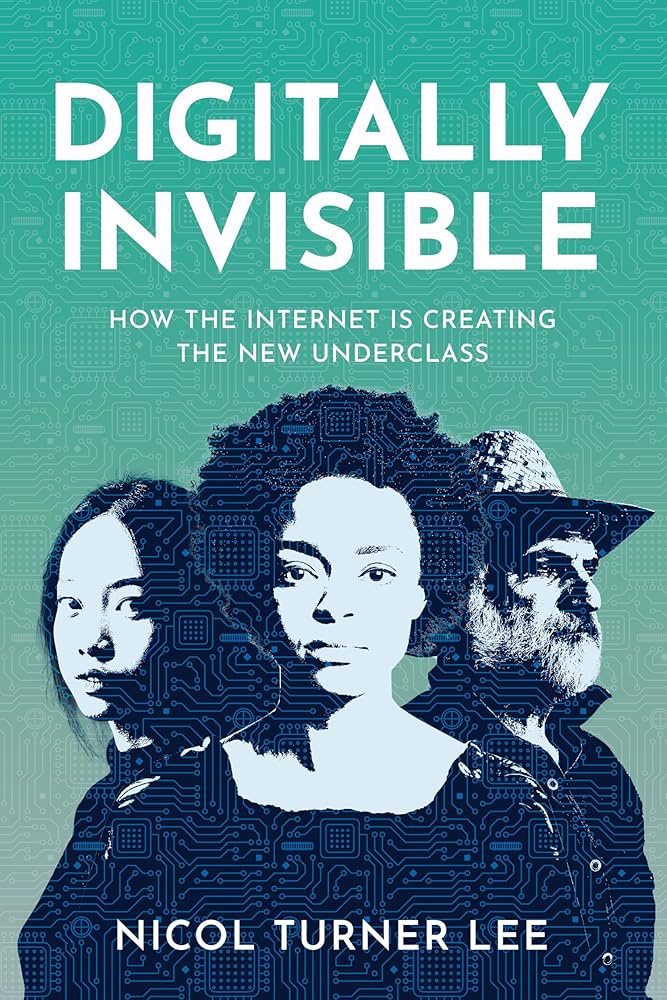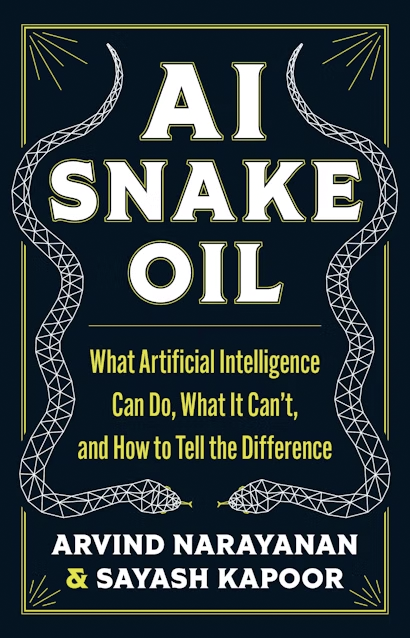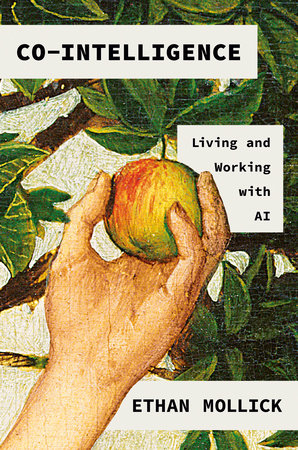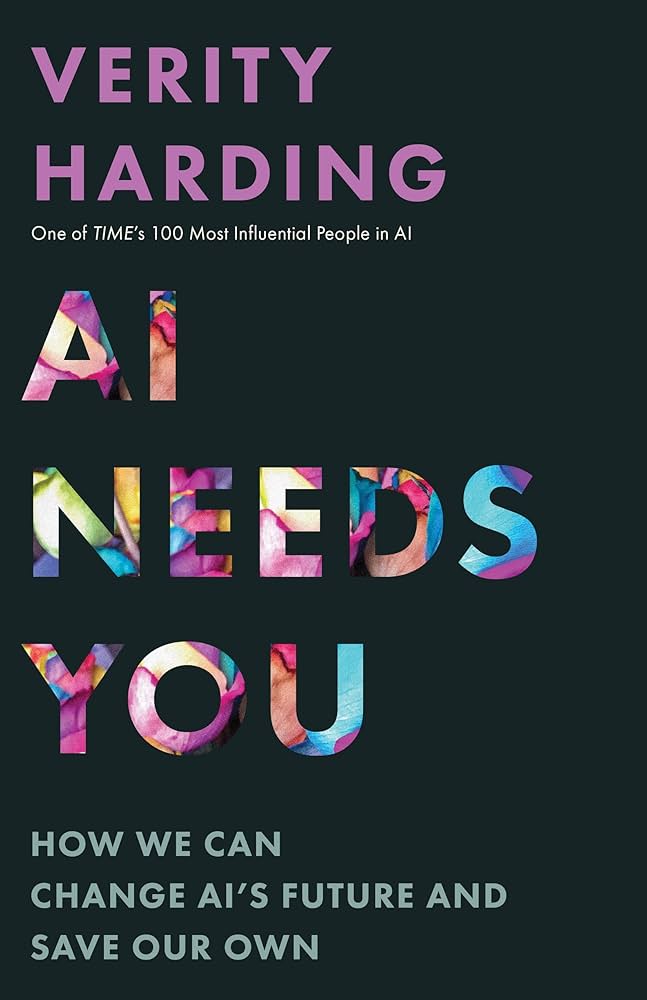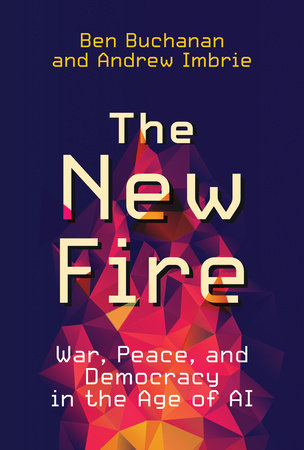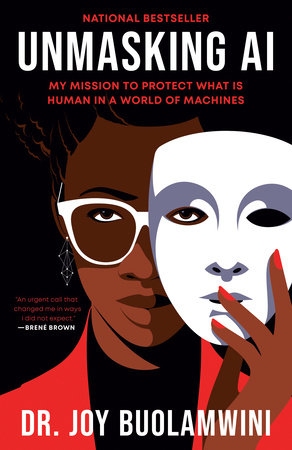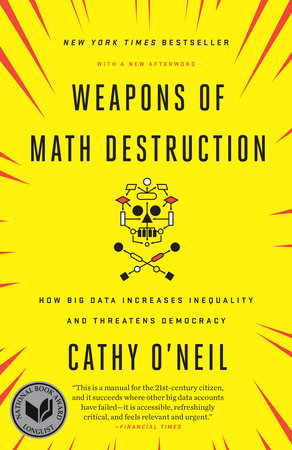As we usher in a new year, many of us set resolutions to better ourselves in different areas of our lives. As AI continues to pervade those different areas of our lives, boosting our knowledge of the technology should be on all our resolutions lists. Whether you are a curious onlooker looking to understand the basics or a seasoned expert looking to deepen your knowledge, the right resources can help you reach your goals this year.
To help you on your journey, we have compiled a list of insightful books that will expand your knowledge of AI and how it is shaping our world. From ethical implications and societal impacts to practical applications and innovative discoveries, these books highlight important topics in the AI space.
1. Digitally Invisible: How the Internet Is Creating the New Underclass
by Nicol Turner Lee
In this book, Nicol Turner Lee, a leading expert on the American digital divide, uses personal stories from individuals around the country to show how the emerging digital underclass is navigating the spiraling online economy, while sharing their joys and hopes for an equitable and just future. Turner Lee argues that achieving digital equity is crucial for the future of America’s global competitiveness and requires radical responses to offset the unintended consequences of increasing digitization. In the end, “Digitally Invisible” proposes a pathway to more equitable access to existing and emerging technologies, while encouraging readers to weigh in on this shared goal.
2. AI Snake Oil: What Artificial Intelligence Can Do, What It Can’t, and How to Tell the Difference
by Arvind Narayanan and Sayash Kapoor
While acknowledging the potential of some AI, such as ChatGPT, AI Snake Oil uncovers rampant misleading claims about the capabilities of AI and describes the serious harms AI is already causing in how it’s being built, marketed, and used in areas such as education, medicine, hiring, banking, insurance, and criminal justice. The book explains the crucial differences between types of AI, why organizations are falling for AI snake oil, why AI can’t fix social media, why AI isn’t an existential risk, and why we should be far more worried about what people will do with AI than about anything AI will do on its own.
3. Co-Intelligence: Living and Working with AI
by Ethan Mollick
Co-Intelligence shows what it means to think and work together with smart machines, and why it’s imperative that we master that skill. Mollick challenges us to utilize AI’s enormous power without losing our identity, to learn from it without being misled, and to harness its gifts to create a better human future. Wide ranging, hugely thought-provoking, optimistic, and lucid, Co-Intelligence reveals the promise and power of this new era.
4. AI Needs You: How We Can Change AI’s Future and Save Our Own
by Verity Harding
AI Needs You argues that it is critical for society to take the lead in answering this urgent question and ensuring that AI fulfills its promise. Verity Harding draws inspiring lessons from the histories of three twentieth-century tech revolutions—the space race, in vitro fertilization, and the internet—to empower each of us to join the conversation about AI and its possible futures. Sharing her perspective as a leading insider in technology and politics, she rejects the dominant narrative, which often likens AI’s advent to that of the atomic bomb. History points the way to an achievable future in which democratically determined values guide AI to be peaceful in its intent; to embrace limitations; to serve purpose, not profit; and to be firmly rooted in societal trust.
5. The New Fire War, Peace, and Democracy in the Age of AI
by Ben Buchanan and Andrew Imbrie
The new fire has three sparks: data, algorithms, and computing power. These components fuel viral disinformation campaigns, new hacking tools, and military weapons that once seemed like science fiction. To autocrats, AI offers the prospect of centralized control at home and asymmetric advantages in combat. It is easy to assume that democracies, bound by ethical constraints and disjointed in their approach, will be unable to keep up. But such a dystopia is hardly preordained. Combining an incisive understanding of technology with shrewd geopolitical analysis, Buchanan and Imbrie show how AI can work for democracy. With the right approach, technology need not favor tyranny.
6. Unmasking AI
by Joy Buolamwini
Unmasking AI goes beyond the headlines about existential risks produced by Big Tech. It is the remarkable story of how Buolamwini uncovered what she calls “the coded gaze”—the evidence of encoded discrimination and exclusion in tech products—and how she galvanized the movement to prevent AI harms by founding the Algorithmic Justice League. Applying an intersectional lens to both the tech industry and the research sector, she shows how racism, sexism, colorism, and ableism can overlap and render broad swaths of humanity “excoded” and therefore vulnerable in a world rapidly adopting AI tools. Computers, she reminds us, are reflections of both the aspirations and the limitations of the people who create them.
7. Weapons of Math Destruction: How Big Data Increases Inequality and Threatens Democracy
by Cathy O’Neil
Tracing the arc of a person’s life, O’Neil exposes the black box models that shape our future, both as individuals and as a society. These “weapons of math destruction” score teachers and students, sort résumés, grant (or deny) loans, evaluate workers, target voters, set parole, and monitor our health.



![$hero_image['alt']](https://partnershiponai.org/wp-content/uploads/2025/01/books-only-1800x832-1.webp)
